
Information to change the world | |
Find Topics, Titles, Names related to your query |

Information to change the world | |
Find Topics, Titles, Names related to your query |
|
|
The Case for Grassroots Archives1) The social transformation we are working for is a long revolution – a process that requires the efforts of generations of activists.
2) Remembering and knowing about previous struggles strengthens us. We learn from past victories and defeats, from mistakes as well as from positive experiences. It is always good to know that we are linked to those who stood up for justice and freedom before us, and to those who will continue the work in the future.
3) Written materials and other physical records are tangible records of the history of social change movements. These materials are people’s history, and they play a valuable role in the “battle of memory.” It is important to preserve as much of this grassroots heritage as we can – and to make it available as widely as possible.
4) Official institutions, for the most part, are not much interested in preserving radical history. Those few which are interested face budget constraints that severely curtail their ability to make acquisitions or provide access to their collections.
5) Preserving the documentary history of grassroots movements has largely fallen to individuals and small organizations who have seen the importance of preventing this history from disappearing “down the memory hole.” Many of these collections are in danger of disappearing over the next few years.
6) We owe it to the future to take steps to secure these grassroots archives, and to make it possible for them to continue as living archives able to continue their work of preserving people’s history and making it available. What can we do to give our archives a future?7) The most pressing need for grassroots archives is space. We need space for: 8) Since grassroots archives document challenges and alternatives to the capitalist status quo, they have limited potential for securing government or private funding, especially in the current climate. Securing space likely depends on establishing partnerships with supportive institutions who see a value in having a people’s history archive within their walls, or on support from private individuals or foundations.
9) It is important that physical records be preserved even after they have been digitized. It may be worth pursuing options for donating grassroots collections to institutional archives after the materials in a collection have been digitized. This would allow grassroots archives to function in smaller spaces.
10) Grassroots archives, resource centres, and small independent libraries in various cities face similar problems related to space and survival. It could be fruitful for us to explore ways of co-operating, both within and between cities, for example by sharing space, infrastructure, and resources.
11) Archive locally, share globally. One way in which we could co-operate is co-ordinating and sharing the work of digitizing, cataloguing, and indexing. If our archives and resource centres share information about their collections and priorities, it could help us avoid duplication of effort while making our resources available to more users.
12) Co-operative archiving of each other’s websites and digital materials. While digital media, including the Internet, are valuable for sharing materials with large numbers of people, they are also uniquely fragile and transitory. Digital media, software, and file formats become obsolete or deteriorate very quickly. Websites disappear. One project we could undertake would be to set up a mutual archiving network whereby radical archives and websites archive each others’ websites and digital records in a systematic way so that there are multiple copies. Create a network?Can we take some practical steps now to co-operate on sharing information and resources, mutual archiving of each other’s websites, and co-ordinating digitization, cataloguing, and indexing?
Can we create a working group or network to work on ideas and initiatives for securing a future for grassroots archives? Connexions would be happy to help set up a network or working group. Ulli Diemer This article is also available in Arabic, Farsi, French, Italian, Serbo-Croatian and Spanish. . Note: If you have a personal or a group’s collection of social justice materials in your basement/locker, etc., and would like to participate in an exploration of co-operative archiving and/or searching for shared space, on donating them to an archive, please contact us via the Contact page. About Connexions Connexions was established in 1975 as a project to connect people working for justice with each other and with resources and information. The Connexions website www.connexions.org features a growing online library of more than 40,000 items, including articles, books, and periodicals, plus a systematic Subject Index which cross-links resources and helps users make connections. Connexions.org also offers a directory of activist groups and websites, an event calendar, the Connexipedia social justice encyclopedia, and the ‘Seeds of Fire’ People’s Chronology. The Connexions website receives more than 70,000 visitors a month. Connexions also maintains the Connexions Archive, a physical archive of more than 150,000 documents spanning more than 50 years of grassroots activism. The materials in the collection are gradually being digitized. Connexions is searching for a space to house the collection and those who work on it. Because Connexions is a very active project – a place where interns and volunteers come to scan, index, write, research, and translate – it needs a transit-accessible space able to accommodate both the physical collection and those who work on it. Connexions is interested in pursuing partnerships and networks with other grassroots archives and resource groups and supportive institutions. Connexions welcomes volunteers. Areas of particular need are computer programming and website design, editing, typing, and of course help with securing space and fundraising. See www.connexions.org/Volunteer.htm 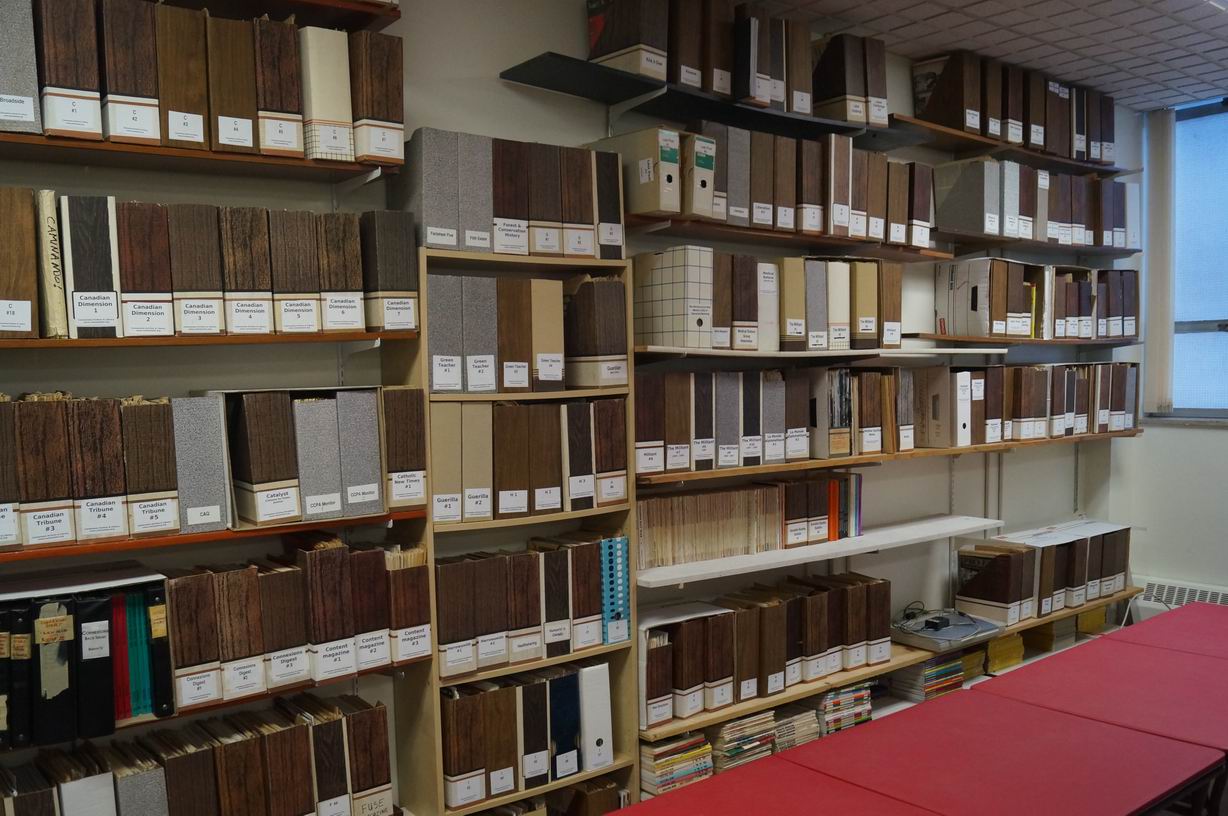 Contact Information Connexions:
Contact
People’s History, Memory, & Archives Gateway Selected Archive Projects Memory as Resistance: Grassroots Archives and the Battle of Memory Collective Memory, Archives, and the Connexions project: An interview Is that an archive in your basement... or are you just hoarding? The Connexions Archive: securing a future for the past Archives & People’s History News - #A Museum Dedicated to Stalin: An Example of How to Deal With Historical Memory (2021) The “Red Light” of Yugoslav Partisan Photography (2020) How To Change The Meaning Of Monuments Without Removing Them (2021) The Silencing the past: reflections on remembering and forgetting (2020) Workers Have a Birthright to Tell Our Own Stories (2020) The LAWG Library and Archives: A personal reflection by Caese Levo, LAWG’s Librarian (2015) Eric Marshall ‘Disturbed’ by Dismantling of Namesake Science Library (2014) Canada’s Science Library Closures Mirror Bush’s Playbook (2014) Activist Archiving in Toronto (2013) Armed gunmen raid salvadoran human rights organization, burn archives (2013) Burning History in San Salvador (2013) The CIA’s Memory Prison: A Perverse Logic (2013) Librarians and Palestine (2013) Mali: Timbuktu’s literary gems face Islamists and decay in fight for survival (2013) Harper’s Seven-Year War on Science (2013) Dismantling of Fishery Library 'Like a Book Burning,' Say Scientists (2013) What’s Driving Chaotic Dismantling of Canada’s Science Libraries? (2013) Secret Memo Casts Doubt on Feds’ Claims for Science Library Closures (2013) Archiving With May Day Rooms (2014) The Great Book Robbery (2012) Whose Archive? Whose History? Destruction of Archives (2012) Save the feature before it explodes: The race to save silent films. (2011) Nostalgia de la luz (Nostalgia for the Light) (2010) South Sudan: Saving past is first step to the future (2010) In Timbuktu the race is on to preserve papers that document a west African golden age (2007) Archives under siege: Ottawa gathering calls for national action (2006) Chile After 30 Years: The “battle of memory” in post-Pinochet Chile (2004) Double Fold: Libraries and the Assault on Paper (2001) Lost Memory: Libraries and Archives Destroyed in the Twentieth Century (UNESCO Report) (Partial) List of destroyed libraries Web archiving: Overview article Pages that have disappeared Archives under siege: Ottawa gathering calls for national action Related topics and resources in the Connexions Subject Index People’s History, Memory, & Archives Gateway –
History Focus page –
Oral History and Memoirs Focus page –
Radical & Left History Focus page –
People’s History, Memory, & Archives Archives/National – Book Burning – Book Preservation – Canadian History – Cultural Preservation – Destruction of Libraries and Archives – Digital Archiving – Digital Libraries – Heritage Conservation – Historical Records – History – History/Archives – History of Political Thought – Illustration Archives – Immigrant History – Information Destruction – Labour History – Left History– Libraries/Archives – Local History – Memory – Online Archives – Oral History – People’s History – Preservation – Women’s History – Workers’ History 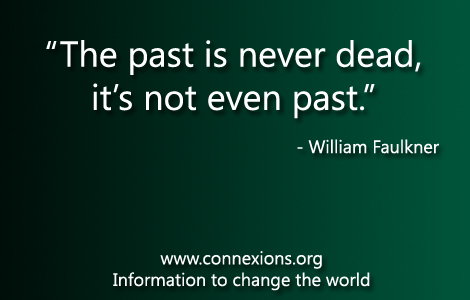 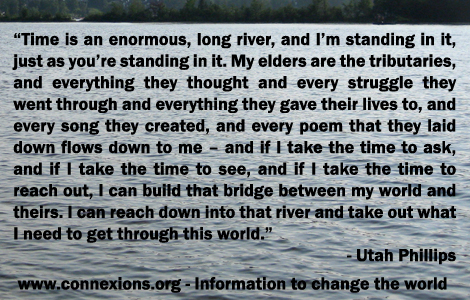 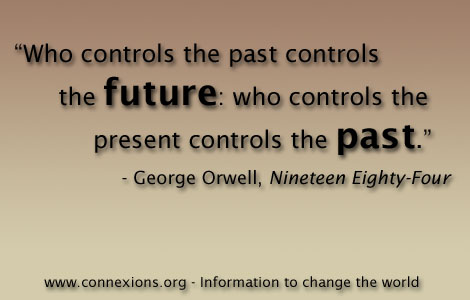 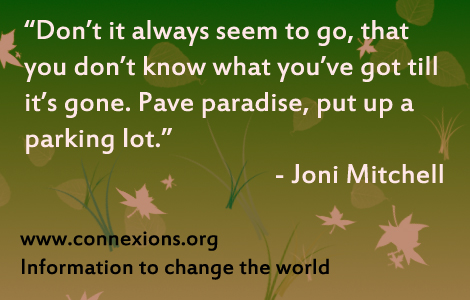 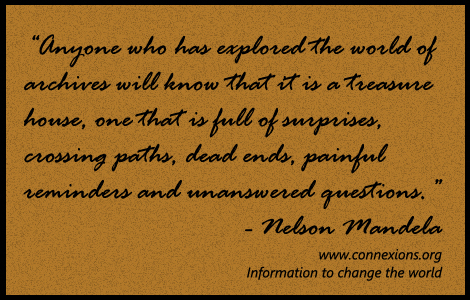 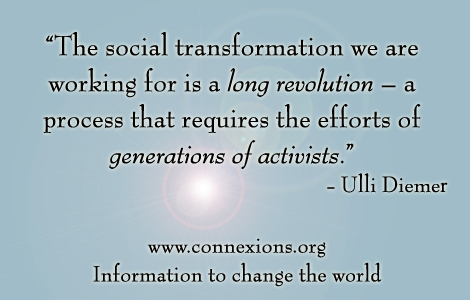 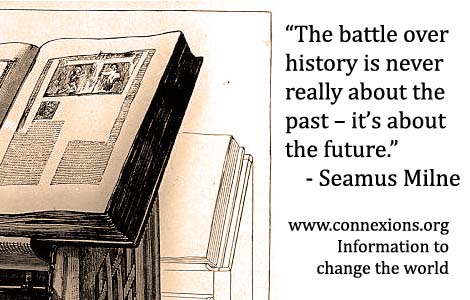 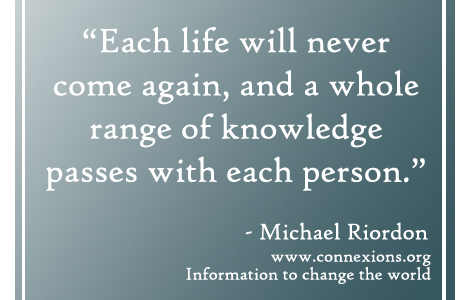 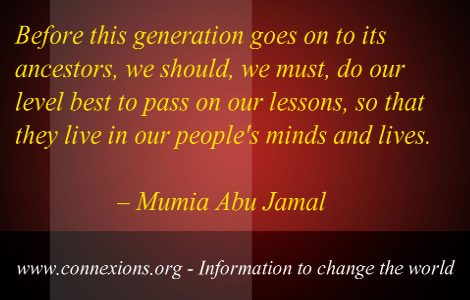 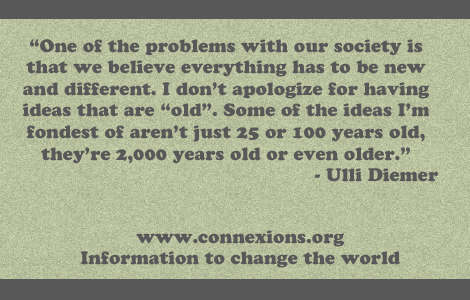 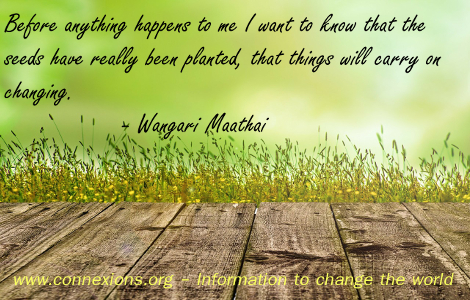 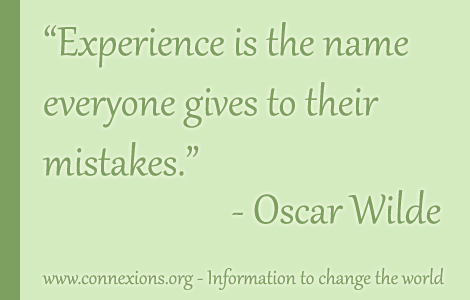 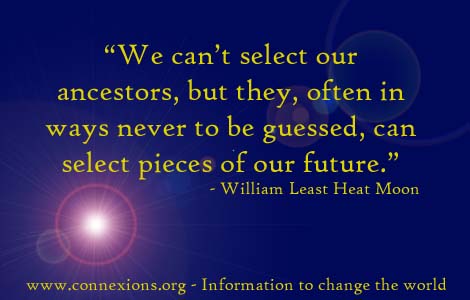 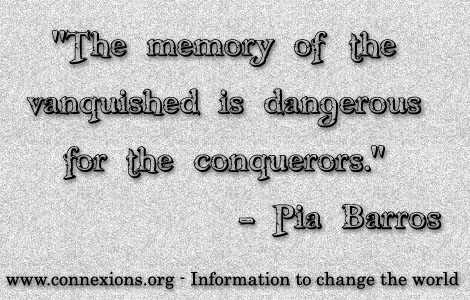 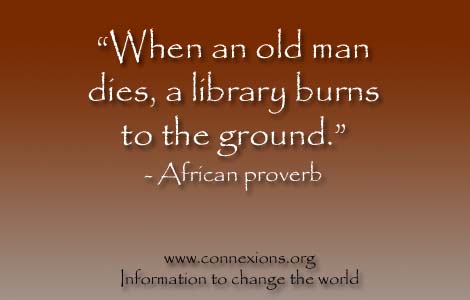 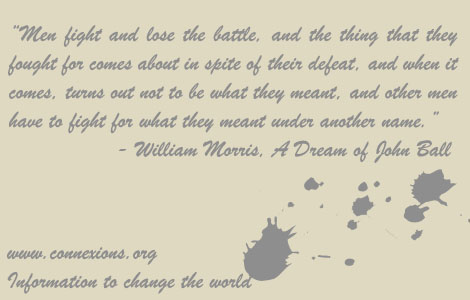 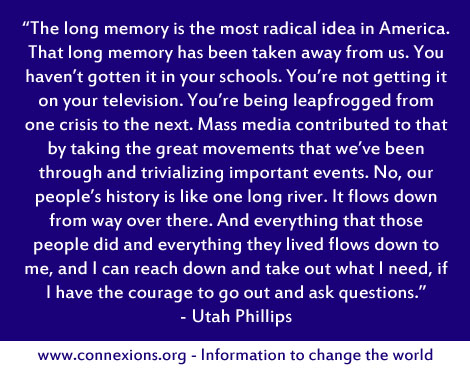 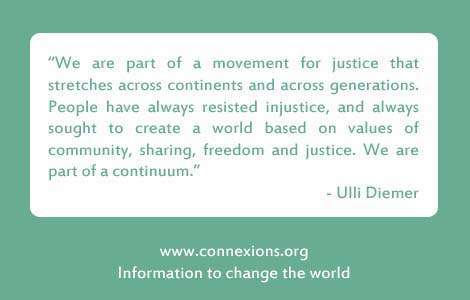 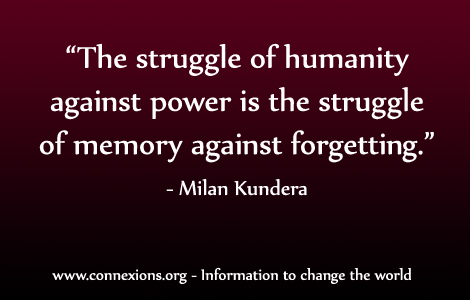 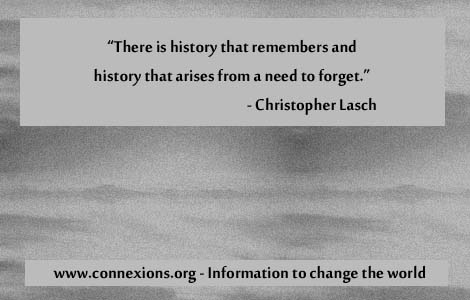 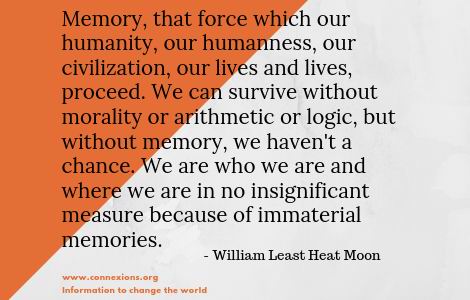 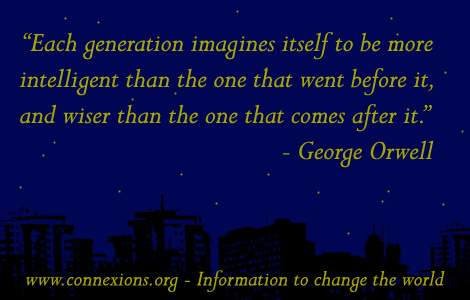 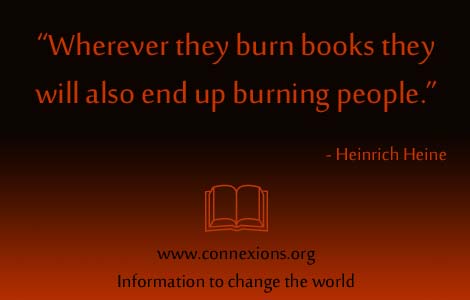 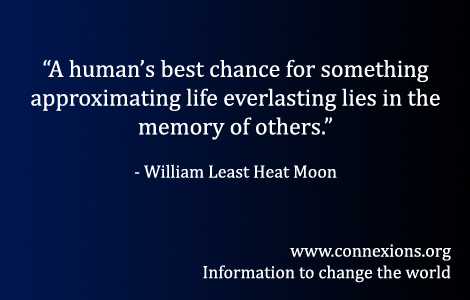 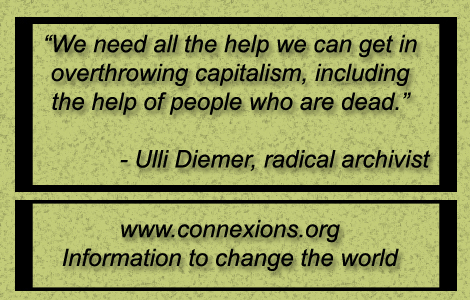 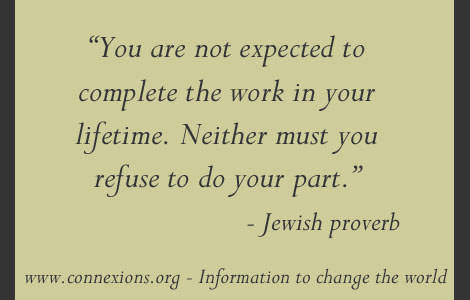 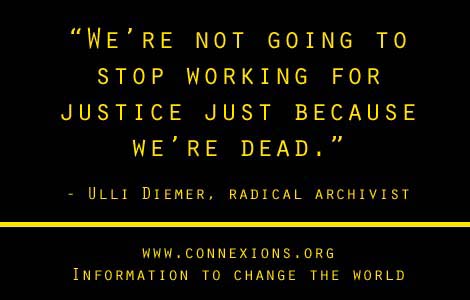 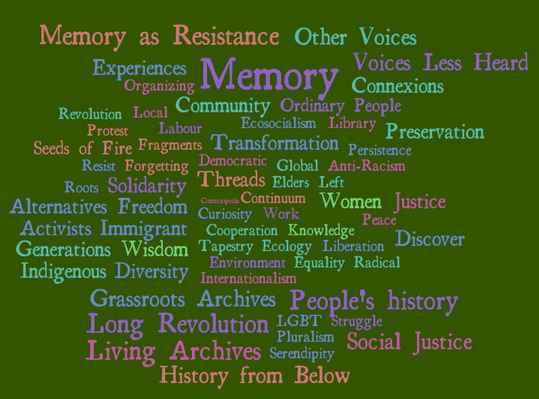 |
Connect with Connexions



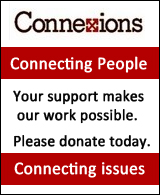
|